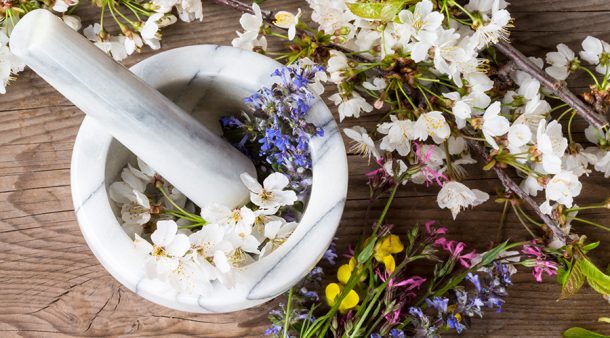
Sinusitis: A Holistic Approach to Structural, Chemical, and Emotional Health
Sinusitis is an inflammation of the nasal sinuses, which are air-filled pockets in the skull connected to the nose and throat. These passages usually drain mucus efficiently, but when they become clogged or too small, pressure builds up. Consequently, this pressure can lead to pain and potential infection. Chronic sinusitis, lasting more than 8-12 weeks, affects over 38 million people in the United States. It is now the most common respiratory condition in the country.
Symptoms and Common Causes
Sinusitis symptoms are similar to those of the common cold. They include yellowish-green mucus, postnasal drip, cough, sore throat, headache, fever, and tiredness. While acute sinusitis often clears up in 5-7 days, chronic sinusitis can be caused by various factors:
- Structural Issues: Problems like a deviated septum, small nasal passages, or nasal polyps can block mucus drainage, leading to sinus blockages and infections.
- Chemical Imbalances: Allergies, food sensitivities, environmental pollutants, and chronic infections can change the body’s chemistry, which worsens sinusitis.
- Emotional Triggers: Stress, anxiety, and emotional imbalances can weaken the immune system, making the body more prone to infections and inflammation.
Structural Considerations
Structural problems like a deviated septum or narrow nasal passages often cause sinus blockages. Therefore, treatments such as chiropractic adjustments, craniosacral therapy, and nasal irrigation (neti pot) can help maintain sinus drainage. Additionally, physical treatments like steam inhalation with essential oils, such as eucalyptus, can open nasal passages and reduce congestion. Moreover, acupuncture and acupressure may relieve sinus pressure by improving energy flow along the meridians related to the sinuses.
Chiropractic Perspective: From a chiropractic viewpoint, sinusitis can result from misalignments in the cervical spine. These misalignments affect nerve function and sinus drainage. Correcting them through gentle adjustments can promote better sinus drainage and reduce inflammation.
Chemical Imbalances and Nutritional Support
Inflammation triggered by allergens, irritants, or food sensitivities often causes the chemical aspect of sinusitis. Thus, dietary changes play a key role in managing sinusitis by reducing mucus production and inflammation.
Diet and Nutrition
Mucus-Producing Foods to Avoid:
Certain foods can increase mucus production. These include dairy products, wheat, refined sugar, alcohol, spicy foods, peanuts, and some citrus fruits. Therefore, the Elimination Diet can help identify food allergies by removing and slowly reintroducing potential allergens like dairy and wheat. Other foods, such as chocolate, corn, soy, and yeast, may also trigger sinus issues.
Foods That Support Sinus Health:
On the other hand, some foods can thin mucus and help it move. For instance, garlic, onions, and horseradish are great for this purpose. Additionally, drinking plenty of water and eating anti-inflammatory foods like leafy greens and berries can help maintain a balanced pH and reduce inflammation. Moreover, eating alkaline foods like leafy greens, vegetables, and some fruits can lower the body’s acidity, which can improve sinus function.
Supplement Protocol for Sinusitis
- Vitamin C with Bioflavonoids (Quercetin): This supplement enhances immune function and reduces the duration of respiratory infections. Furthermore, quercetin works with vitamin C to shrink sinus membrane swelling and block histamine release.
- Berberine-Containing Herbs (Oregon Grape, Goldenseal, and Barberry): These herbs have natural antimicrobial properties and support immune function. They are particularly effective against bacterial sinusitis.
- Oregano: Acts as a natural antibiotic and antiviral, which helps in thinning mucus.
- Medical Mushrooms (Reishi and Shiitake): These mushrooms boost the immune system and reduce inflammation.
- Colloidal Silver: This can be used as a natural antibiotic for sinus infections, either as a nasal rinse or taken orally.
Emotional Aspects of Sinusitis
According to Traditional Chinese Medicine (TCM), the sinuses are connected to the Lung and Large Intestine meridians. These meridians relate to the body’s ability to “let go” of grief and sorrow. When we hold onto emotional pain, it can show up as physical symptoms like sinus congestion. In this context, chronic stress raises cortisol levels, which weakens the immune system. As a result, the body becomes more prone to infections, including those affecting the sinuses.
Emotional Release Techniques
- Breathing Exercises: Deep breathing can improve oxygen flow and promote relaxation, which reduces the body’s stress response.
- Meditation and Mindfulness: These practices help manage stress and emotional triggers that may contribute to sinusitis.
- Affirmations and Energy Healing: Practices like Reiki and affirmations can support emotional healing. For example, saying “I release all anger and resentment” can help shift the emotional state, which may ease physical symptoms.
TCM Perspective: Chinese Element Theory and Chakras
In TCM, sinusitis is often linked to an imbalance in the Metal element, which governs the Lung and Large Intestine. This imbalance can result from emotions like grief, loss, and difficulty letting go. Additionally, the energy of the Metal element flows through the Third Eye Chakra (Ajna), located between the eyebrows. This chakra relates to intuition, clarity, and vision. When blocked, it may lead to sinus congestion and other respiratory issues.
Balancing Practices
- Acupressure and Acupuncture: Stimulating specific points on the Lung and Large Intestine meridians can restore balance. This can aid in sinus drainage and reduce inflammation.
- Essential Oils: Using oils like eucalyptus, peppermint, and tea tree in aromatherapy can open the sinuses and support the respiratory system.
Conclusion
A holistic approach to managing sinusitis involves addressing structural issues, chemical imbalances, and emotional health. Through dietary changes, nutritional supplementation, stress management, and natural therapies like chiropractic adjustments, acupuncture, and herbal remedies, individuals can find relief from sinusitis symptoms. By understanding the connection between the body, mind, and emotions, people can take a more active role in their sinus health and overall well-being.


